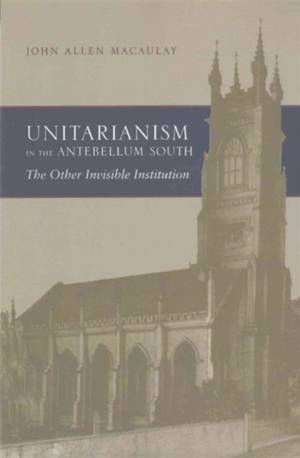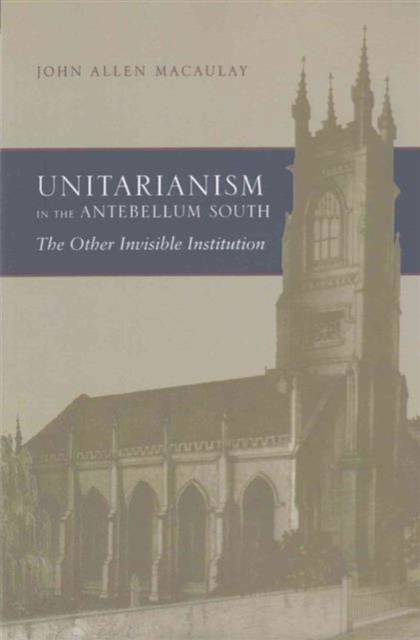
Je cadeautjes zeker op tijd in huis hebben voor de feestdagen? Kom langs in onze winkels en vind het perfecte geschenk!
- Afhalen na 1 uur in een winkel met voorraad
- Gratis thuislevering in België vanaf € 30
- Ruim aanbod met 7 miljoen producten
Je cadeautjes zeker op tijd in huis hebben voor de feestdagen? Kom langs in onze winkels en vind het perfecte geschenk!
- Afhalen na 1 uur in een winkel met voorraad
- Gratis thuislevering in België vanaf € 30
- Ruim aanbod met 7 miljoen producten
Zoeken
€ 25,95
+ 51 punten
Uitvoering
Omschrijving
John Macaulay's model study of Unitarianism in the antebellum south reestablishes the denomination's position as an influential religious movement in the early history of the region. By looking at benevolent societies, lay meetings, professional and civic activity, ecumenical interchange, intellectual forums, business partnerships, literary correspondence, friendships, and other associations in which southern Unitarians were engaged with other southerners on a daily basis, Macaulay sees a much greater Unitarian presence than has been previously recognized. Instead of relying on a count of church steeples to gauge numbers, this volume blurs the lines between southern Unitarianism and orthodoxy by demonstrating how their theologies coexisted and intertwined. Macaulay posits that just beneath the surface of organized religion in the South was an "invisible institution" not unlike Franklin Frazier's Black Church, a nebulous network of liberal faith that represented a sustained and continued strand of Enlightenment religious rationalism alongside and within an increasingly evangelical culture. He shows that there were in fact two invisible religious institutions in the antebellum South, one in the slave quarters and the other in the urban landscape of southern towns. Whereas slave preachers rediscovered in music and bodily movement and in themes of suffering a vibrant Christian community, Unitarians witnessed the simple spiritual truth that reason and belief are one unified whole. In offering this fresh argument, Macaulay has chipped away at stereotypes of the mid-19th-century South as unreservedly "evangelical" and contributed greatly to historians' understanding of the diversity and complexity in southern religion.
Specificaties
Betrokkenen
- Auteur(s):
- Uitgeverij:
Inhoud
- Aantal bladzijden:
- 238
- Taal:
- Engels
- Reeks:
Eigenschappen
- Productcode (EAN):
- 9780817358655
- Verschijningsdatum:
- 31/08/2016
- Uitvoering:
- Paperback
- Formaat:
- Trade paperback (VS)
- Afmetingen:
- 150 mm x 226 mm
- Gewicht:
- 340 g

Alleen bij Standaard Boekhandel
+ 51 punten op je klantenkaart van Standaard Boekhandel
Beoordelingen
We publiceren alleen reviews die voldoen aan de voorwaarden voor reviews. Bekijk onze voorwaarden voor reviews.









